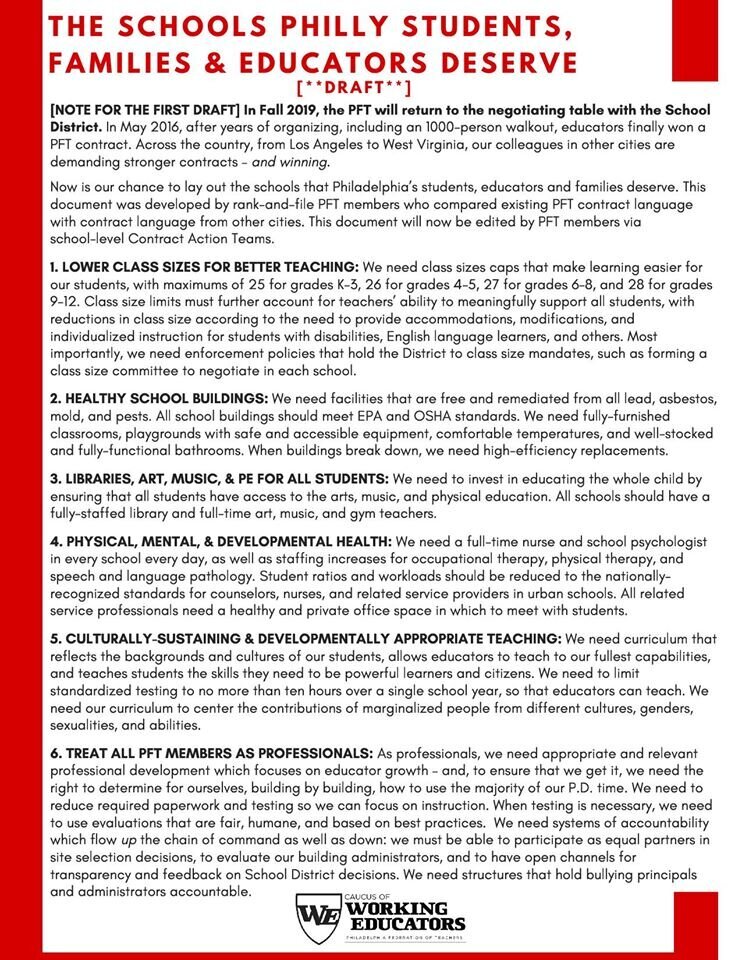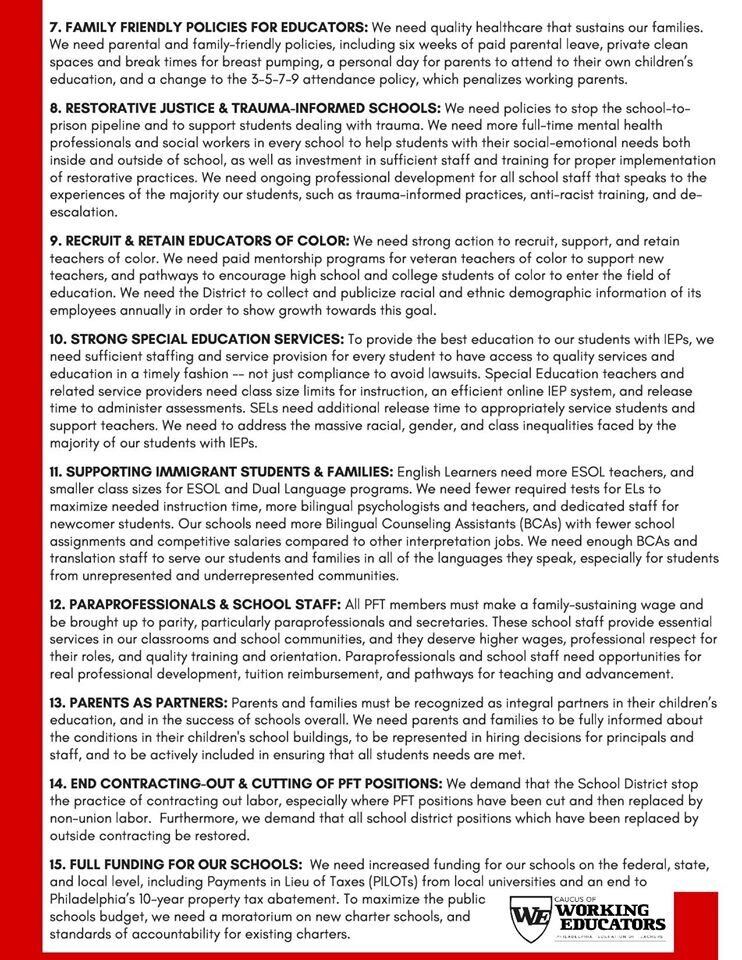Teacher Unionizing in Philadelphia
Week 8 - 10/17/2019
In the Class
Summary
During this session, we opened discussion on teachers unions and the case of Ocean Hill, Brownsville, NY. A large part of the discussion centered around race and how whiteness is maintained in the structure of education. Our readings exemplified what social justice unionism can accomplish, fostering thought around, “what’s at stake?”. We put social justice unionism in Philadelphia context by focusing on The Caucus of Working Educators (WE), a group of rank and file members of The Philadelphia Federation of Teachers (PFT). This upcoming year, 2020, The WE Caucus, is contesting the current PFT leadership for a second time. We heard from two WE members in class who shared their belief in the caucus and their visions for a stronger union. Grass-roots organizing strategy is based on 1:1 conversations and building relationships of trust. We had our class practice organizing conversations to prepare for future phone banking opportunities of calling PFT members to campaign for WE.
Beyond the Class
Workers on Strike!
The Chicago Teacher’s Union began striking on October 17th. Teachers demanded equitable lives for students and themselves. General Motors workers reached their 35th day on strike. You can also visit Teacher Strike Tracker for up-to-date news on strikes across the US.
Opening Reflection
Click to Enlarge
Playlists for Organizing
How do you work with constituents to build an understanding of group interest?
Collective Bargaining
Philadelphia Federation of Teachers. (2019) CB Team Accomplishments [Web Page]. Collective Bargaining Team.
Philadelphia Federation of Teachers Health & Welfare Fund. (Sept 2019) Healthy Schools Action Plan: Asbestos Crisis in Philly Schools.
Mezzacappa, D. (2016, August 15). State Supreme Court rules in favor of PFT in contract case. TheNotebook.org.
How can we center social justice in unionizing and organizing? What gets lost when this is not done?
Working Educators
Graham, K. A. (2018, February 6). Black Lives Matter Week of Action, born in Philly, goes national. The Inquirer.
Schroeder, P. (2014, November 18). Caucus of teachers’ union focused on social justice holds first conference. TheNotebook.org.
Windle, G. (2019, April 15). Educators tell Council to end 10-year tax abatement with support from gallery. TheNotebook.org.
Melville, K. (2016, March 22). On Unions and Gyms: A Teacher Works to Make Her Union Stronger. EducationWeek.
Class Discussion
Our class discussion focused on responses to two piece pieces: a documentary on educator organizing, and a podcast from the Chicago Teacher’s Union.
POWER! (1966-1968)- start at 36 minutes for Oceanhill/Brownsville. This piece belongs in conversations with discourses around antisemitism. A directly related article to read is: https://www.jta.org/1969/03/19/archive/see-teachers-union-playing-down-black-anti-semitism-in-ocean-hill-brownsville
Phone Banking Practice
In the second half of class we reviewed the Caucus of Working Educators’ list of demands. With the help of the two guest, we practiced phone banking. We were able to call a fellow WE caucus nurse to practice our new skills. We learned the importance of connecting on a human level, listening, and the value of being passionate and able to speak about the things we care about.
In the discomfort of this process, Krystal urged us to sit in this different feeling and consider how being uncomfortable is part of growing into activism and learning. The talking points we used are listed to the right. These are the demands of the WE caucus.






